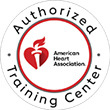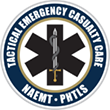Why TECC Courses Are Crucial for First Responders
When the matter is of life and death, then the need to intervene and respond to the situation as a team and offer the best solution is something very vital. Emergency care providers are the heroes who get to the scene first during disasters and they have to have the capacity to handle the dead in difficult situations. Among the important training for these professionals are the Tactical Emergency Casualty Care or the TECC Course for short. This specialized training equips first responders with the skills to manage medical emergencies in tactful confrontations and is therefore very crucial for their toolkit.

Understanding the TECC Course
The TECC course is intended for emergency medical services (EMS) practitioners as well as other prehospital care providers to learn how to manage patients in civilian tactical scenarios. Created by the NAEMT, TECC is TCCC reworked for civilian responders, who work in an environment different from the battlefield.
The course is structured around three distinct phases of tactical care, each corresponding to different levels of threat and safety:
- Hot Zone/Direct Threat Care: This phase takes place when the responder is under attack, say when facing a shooter or in a terror attack scene. The basic concept revolves around minimizing the time spent in treating fatal injuries and making the casualty ready for early clearance.
- Warm Zone/Indirect Threat Care: In this phase, the threat is managed to be contained though the danger persists and lurking nearby ready to attack at any one time. The responder can then proceed to the casualty and take deliberate steps to attend to the casualty; the use of tourniquets, control of bleeding, and airway control.
- Cold Zone/Evacuation Care: It occurs when the casualty has been taken to a more secure zone where more advanced care can be offered and where possible preparations for evacuation to a medical facility can be done.

The Importance of TECC Training
To this end, the use of TECC training is an important necessity for all first responders because it pays attention to those cases where standard protocols of usage might not work. Therefore, often first responders have to attend to unstable scenes, with threats still in operation, scarce resources, and unfavorable conditions. However, through the TECC course, the essential tools and options that they require to handle these circumstances are given to them.
As an example, in the Hot Zone/Direct Threat Care stage, learners discover crucial care delivery while still in the war zone or danger. This includes practices such as hemorrhage control by using tourniquets or even by use of hemostatic agents in case there is no possibility of evacuating the patient.
During Warm Zone/Indirect Threat Care, the responders understand that they may have to work fast but do so even though the threat may not be entirely contained. This phase is a crucial one because it focuses on such skills as airway management, needle decomposition for tension pneumothorax, and hypothermia prevention which are essential for casualty stabilization in a tactical setting.
Last but not least; the Cold Zone/Evacuation Care phase is based on the issues relating to the removal of casualties to further higher echelons of care. This entails offering patients what is called ‘pre-hospital care’ such as positioning them to be transported, controlling their pain and other measures to ensure that they do not get more injured when being evacuated.
Code 3 Life and TECC Training
TECC is provided by Code 3 Life which is a well-known organization for the provision of emergency medical training in the USA. These are NAEMT’s TECC courses, which are the 2nd edition; The American College of Surgeons Committee on Trauma endorses these courses. Code 3 Life’s TECC course complies with the present guidelines set by Co-TECC and corresponds to all of the enhanced National Tactical Emergency Medical Support Competency Domains.

In particular, the TECC course offered by Code 3 Life stands out as something very special primarily due to the comprehensiveness of the offered program. The course involves sixty hours of coursework; the participants take part in new patient simulations that mimic real-life tactical situations. These simulations assist the students in practicing what they have learned so as to produce a correct response in real emergency situations.
Also if studying with Code 3 Life, the TECC course is approved by Commission on Accreditation for Pre-Hospital Continuing Education (CAPCE) for 16 hours of continuing education credit. It is also accredited with the National Registry of Emergency Medical Technicians – NREMT, so is a very useful tool for anyone who wants to acquire further credentials or who needs to refresh their certification.
The Role of TECC Course Certification in Career Advancement
So, getting the TECC certification is not just simply a prerequisite for some positions; it is a sign of recognition of first responders who have shown the commitment to grow as professionals and be ready to handle any case they may face. This means that the cases of tactical events are becoming more and more common in civilian environments; therefore, there is a need to employ people with TECC certification.
To EMS practitioners, firefighters, law enforcement officers, and all other first responders, TECC certification paves the way for a chance at career progression. It is common for agencies and organizations to provide preference to the candidates who have undergone this intense training because they understand that such people are more professional and prepared to handle the responsibilities demanded of their positions.

Furthermore, for people who are already in the field and the ones practicing in the field, the absorption of a TECC course can elevate them to a higher rank or a leadership position in their respective organizations. Both the knowledge and the skills acquired at a TECC course are very useful for anyone who wishes to assume more responsibilities, whether in a leadership position or as a member of a specialized response force.
Why TECC Courses Are Essential in the USA
The rising numbers of mass casualty incidents, active shooters, and other natural disasters in the United States have helped further accentuate the need for specialized first responding. TECC courses USA has now become a centerpiece of this training whereby first responders are trained on how to save lives during difficult circumstances.
Therefore, the TECC course is relevant in today’s environment and calls for numerous situations first responders may encounter. Whether the incident involves a mass shooting, a terrorist attack or a disaster where buildings collapse, or people lose their lives, successful tactical emergency casualty care could make the difference between life and death in such incidents.
FAQs
What is a TECC course?
A TECC course is a specialized training program designed to teach first responders how to provide emergency medical care in tactical situations. It is based on the principles of tactical combat casualty care (TCCC) and adapted for civilian use.
Why is TECC training important?
TECC training is crucial because it equips first responders with the skills and knowledge to manage casualties in high-threat environments, where traditional emergency medical protocols may not apply.
What does TECC certification entail?
TECC certification involves completing a comprehensive course that includes classroom instruction, patient simulations, and practical exercises. It is recognized by major accrediting bodies and can enhance a first responder’s qualifications and career prospects.
Can I take a TECC course online?
Yes, Code 3 Life offers options for a TECC course online, allowing first responders to complete the theoretical components of the training at their own pace.
Who should take a TECC course?
The TECC course is ideal for EMS practitioners, firefighters, law enforcement officers, and other prehospital providers who may be called upon to respond to emergencies in tactical environments.
In conclusion, TECC courses are an essential part of first responder training in the USA. Whether taken in a classroom setting or online, these courses provide the critical skills needed to save lives in the most challenging and dangerous situations. Through TECC training and certification, first responders can ensure they are prepared to meet the demands of their roles, protect their communities, and make a lasting impact in the field of emergency medical services.


